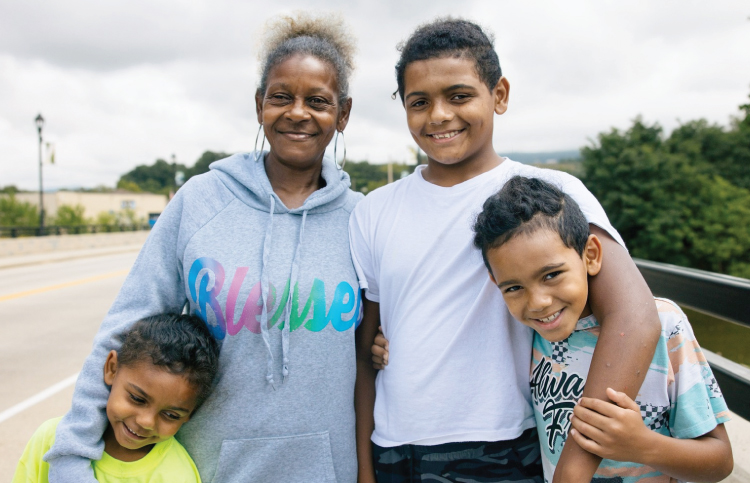
Food insecurity—the lack of consistent access to sufficient food for an active, healthy life—disproportionately affects Black communities in the United States. Numerous studies from both the U.S. Department of Agriculture (USDA) and Feeding America highlight the intersection of systemic inequalities affecting Black individuals and their impact on access to nutritious food.
Prevalence of Food Insecurity in Black Households
According to the USDA’s Economic Research Service, from 2016 to 2021, 11.1% of U.S. households experienced food insecurity. However, this rate was significantly higher among Black households. In 2023, 23.3% of Black households faced food insecurity, more than double the rate of White non-Hispanic households, which stood at 9.9%.
According to the latest data from Feeding America’s Map the Meal Gap study, 1 in 3 black individuals in Harvesters’ service area is food insecure.
Contributing Factors to Disparities
Several factors contribute to the higher rates of food insecurity in Black communities:
- Economic Inequality: Black Americans are more likely to experience poverty due to systemic issues such as wage gaps, higher unemployment rates, and limited access to quality education. This economic disparity reduces the ability to afford sufficient and nutritious food.
- Redlining/Food Deserts: Redlining is the discriminatory practice of denying or limiting financial services to certain neighborhoods based on race, color or national origin. It can also refer to the practice of drawing boundaries around neighborhoods based on race. These neighborhoods often lack supermarkets or grocery stores that offer fresh and affordable produce. Instead, residents may rely on convenience stores that often stock processed and unhealthy food options. Nearly 20% of people in the U.S. live in food deserts, with low-income and predominantly Black and Brown communities being particularly affected.
- Mass Incarceration – Black and Brown people are at far greater risk of being targeted, profiled and arrested for minor offenses, especially in high poverty areas, according to the National Alliance to End Homelessness. Further, racial profiling and racist policing practices create extreme racial disparities in incarceration, impacting individuals’ and families’ experience with/need for food, housing, healthcare and financial assistance. Policies that restrict employment for individuals who were previously incarcerated many times disadvantage people of color, contributing to food insecurity.
Health Implications
The lack of access to nutritious food has significant health consequences. Black communities experience higher rates of diet-related diseases, including hypertension, heart disease and diabetes. The prevalence of food deserts exacerbates these health disparities, as limited access to healthy food options leads to increased consumption of processed foods.
Community Initiatives and Solutions
Addressing food insecurity in Black communities requires a multifaceted approach:
- Urban Agriculture: Community gardens and urban farms can provide fresh produce to underserved areas, promote healthy eating, and foster community engagement. Urban agriculture not only improves access to healthy food but also contributes to a sense of community, aesthetic improvement, crime reduction, minority empowerment, and autonomy.
- Policy Advocacy: Advocating for policies that address economic disparities, support affordable housing and ensure equitable access to education can help reduce food insecurity.
- Support for Local Businesses: Encouraging the establishment and patronage of Black-owned grocery stores and restaurants can strengthen local economies and improve food access.
- Nutrition Assistance Programs: Enhancing programs like the Supplemental Nutrition Assistance Program (SNAP) to better serve Black communities can provide immediate relief. However, barriers to accessing fresh produce remain, and comprehensive solutions are needed to enhance accessibility and mitigate long-term health impacts.
Harvesters is committed to stand in the gap for those who don’t have ready access to nutritious food, including our Black neighbors. We strive to not only provide assistance, but invite partnership with other organizations, to find innovative ways to address the systemic issues that lead to this inequality. We also partner with many black-led organizations who are on the front line of addressing these issues in their own communities.